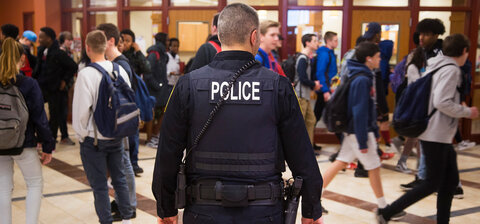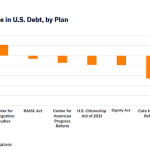
Kayla Susalla
During the October 1 vice-presidential debate, when asked about holding parents accountable for mass shootings in schools, Sen. JD Vance (R‑OH) responded, in part:
I don’t want my kids to go to school and a school that feels unsafe or where there are visible signs of security. But I unfortunately think that we have to increase security in our schools. We have to make the doors lock better. We have to make the doors stronger. We’ve got to make the windows stronger. And, of course, we’ve got to increase school resource officers because the idea that we can magically wave a wand and take guns out of the hands of bad guys, it just doesn’t fit with recent experience.
Crucially, while the desire to do everything possible to prevent school shootings is entirely understandable, it is unclear if police presence is a net positive.
Researchers have found that weapons-related offenses persisted when school resource officers (SROs) were increased in California schools using federal grants, compared to statistically matched schools that did not increase SROs, concluding they did not make schools safer. Another study found that increasing the SROs in North Carolina schools had no effect on weapon possession, drug possession, or alcohol offenses but did decrease instances of serious violence. On the flip side, it increased exclusionary discipline.
A third study, using a nationally representative sample, compared schools near police departments above the threshold to receive federal SRO grants and schools below. It found that being above the line increased the number of recorded firearm offenses and decreased the instances of violent fights. More SROs did not prevent school shootings or gun-related incidents but did increase exclusionary discipline actions.
With research producing inconclusive results about the long-term effects on deterring weapons possession and school shootings, the federal government should not incentivize states to increase SROs. It is important to remember that there are possible upsides but also possible downsides to increased policing of schools, the latter including potential misconduct by SROs who could be effectively immune from prosecutorial accountability and unnecessarily feeding the school-to-prison pipeline.
The federal government should not be promoting policies that could be doing more harm than good. States are our “laboratories of democracy” and must be allowed to employ their own approaches free of federal coercion.





